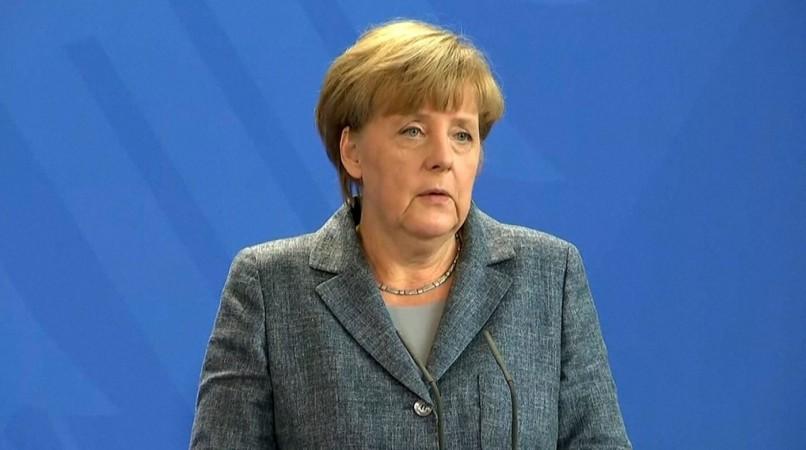
German Chancellor Angela Merkel arrived in Saudi Arabia on Monday, defying the kingdom's norm for women to wear a traditional headscarf in public. Merkel was greeted by Saudi King Salman and other top officials in the western city of Jiddah.
This is not the first time that Merkel arrived in the conservative Islamic kingdom without covering her head; many other female Western visitors have also done the same over the past years, including former First Lady Michelle Obama and Hillary Clinton.
UK Prime Minister Theresa May had also rejected the strict dress code in place for women in the kingdom, when she arrived in Riyadh recently. May had said that she hoped to be an inspiration for oppressed women in Saudi Arabia.
There is a strict, conservative dress code in place for women in the oil-rich kingdom, which requires them to wear a full-length robe and cover their hair when they go out in public. The nation has several other regressive laws for women too, including a ban on driving and a guardian system which limits their free movement without permission of a male guardian.
Merkel had called for a nationwide ban on burqa in Germany last year, saying that the full-face veil was "not acceptable in our county". "It should be banned, wherever it is legally possible," Merkel had said.
Last week, the German Parliament also voted for a draft law which partially bans women working in the civil service, judiciary and military from wearing full-face veils. According to reports, burqas and niqabs will be prohibited in selected professions as part of the legislation, once approved by the Bundesrat state parliament.
On her Saudi visit, Merkel is expected to persuade Gulf leaders to take in more number of refugees and provide humanitarian relief to all those people fleeing conflict in Muslim-majority countries. The German leader is scheduled to travel to United Arab Emirates (UAE) after finishing her Saudi Arabia visit.
Germany has provided refuge to hundreds and thousands of people from war-struck zone over the recent years, including those from Syria, Iraq and Afghanistan.














